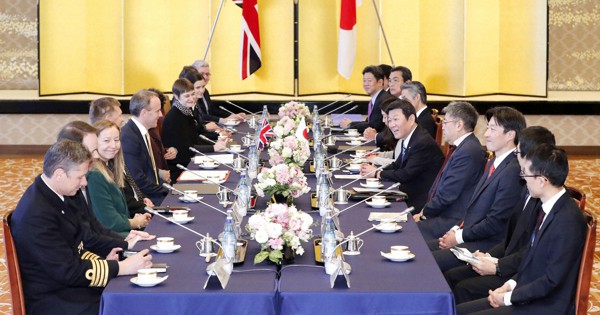TOKYO (Kyodo) — Japan and Britain are expected to conclude talks soon on a post-Brexit trade pact, as the two sides are set to resolve differences on British cheese, the last remaining key issue for the deal, a source close to the matter said Wednesday.
Expected progress in talks on cheese will remove a major barrier to their goal of wrapping up talks on a new pact to replace the existing Japan-EU free trade agreement for implementation on Jan. 1, 2021.
Britain will no longer be part of the bloc when its transition period ends in December, meaning it will no longer enjoy the lower tariffs agreed between Japan and the European Union.
In a bid to avert such disadvantage, Tokyo agreed to offer the same preferential treatment it has for cheese from the European Union to British blue cheese, the source said.
Britain was asking for preferential treatment for its cheese but Tokyo had been reluctant to introduce a new import quota for London, according to the source.
Japanese Foreign Minister Toshimitsu Motegi said earlier this month that the two countries had reached substantial agreement in most areas following his two days of talks with British International Trade Secretary Liz Truss in London.
Truss said at the time Japan and Britain were now aiming to reach a “formal agreement in principle” by the end of August.
Motegi and Truss will hold a videoconference as early as Friday to discuss remaining issues including cheese, the source said.
The two sides are now considering an arrangement for British cheese to have the same preferential treatment, when the annual low-tariff import quota for EU cheese is unfilled, the source said.
In the Japan-EU trade pact that came into force in February 2019, Japan implemented an import quota on soft cheeses, including blue cheese, where tariffs will be reduced in stages to zero by the 16th year.
In the fiscal year that ended March 2020, Japan set an import quota of 20,600 tons of cheese from the European Union but reduced tariffs were applied only to 58 percent of the total.
In the same year, Japan imported 1,192 tons of blue cheese, of which only 27 tons were from Britain. Around half of the total was from Italy, followed by the second-largest exporter Denmark.



